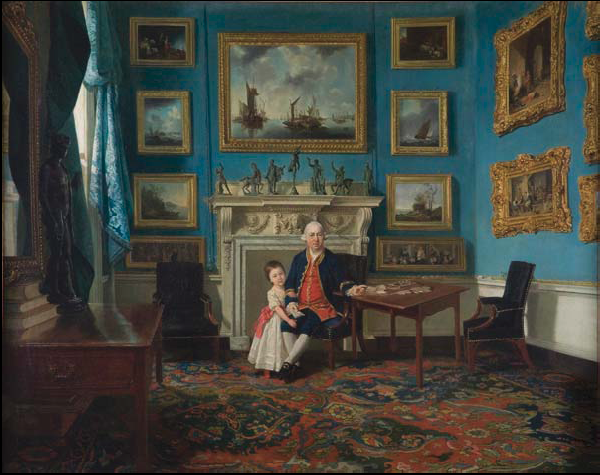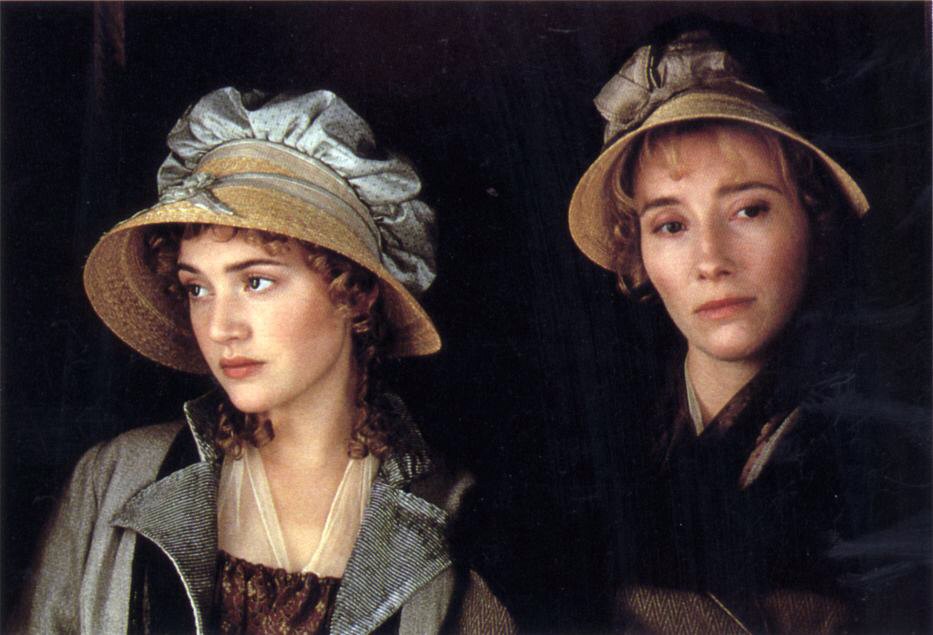Shouldn’t it be a stiff lower lip? When a person loses control of his or her emotions, and gives in to the instinct to blub, the telltale sign is not the unstiffening of the upper lip but the wobbling of the lower. In short, we have been saddled with a national characteristic that is an anatomical inaccuracy. It was an American who got it wrong in the late 19th century. But that’s not until next week. In fact in part one of this history of British repression, we weren't very repressed at all. We – or rather our Enlightenment forebears – had not yet learned the art of keeping a lid on it.
Ian Hislop has more or less perfected the decorous tele-essay. Programmes on Victorian bankers and philanthropists have come at social history not from the ground up or the top down, but sideways in via anecdote, observation and vignette. In this latest root around our past, Hislop attempts a kind of psychological profile of the British character across the centuries. Although he started with Erasmus in 1499 noting the English eagerness to kiss at every opportunity, the real story begins from, roughly speaking, the moment we embarked on a quest to rule the waves at the start of the 18th century.
 Thus Robinson Crusoe, did anyone but know it, was a prototype of the sort of sturdy Brit who in centuries to come would keep calm and carry on. But for the remainder of the Age of Reason Defoe’s lonesome hero was hardly the gold standard. In Georgian England it was ever so de rigueur for gents to show their refinement by emoting all over the shop, while ladies’ kerchiefs were soaked through thanks to the newfangled tearjerker known as the novel. The cult of sensibility, so-called, legitimised and even codified sentiment. Hislop noted Sir Lawrence Dundas publicly displaying affection for his grandson in Zoffany’s portrait (pictured above right).
Thus Robinson Crusoe, did anyone but know it, was a prototype of the sort of sturdy Brit who in centuries to come would keep calm and carry on. But for the remainder of the Age of Reason Defoe’s lonesome hero was hardly the gold standard. In Georgian England it was ever so de rigueur for gents to show their refinement by emoting all over the shop, while ladies’ kerchiefs were soaked through thanks to the newfangled tearjerker known as the novel. The cult of sensibility, so-called, legitimised and even codified sentiment. Hislop noted Sir Lawrence Dundas publicly displaying affection for his grandson in Zoffany’s portrait (pictured above right).
But it was another canvas of Zoffany’s which illustrated the kind of behaviour up with which the British would not put. As depicted in his Plunder of the King's Wine Cellar, the unbridled excesses of the French Revolution equated emotion with radical fervour and, ever so gradually like snails sensing danger, the British ruling classes deemed it seemly to retreat into their shells. This volte-face was captured in the two great heroes of the Napoleonic Wars. As he was whupping the French up and down the Med, Nelson shagged and wept with 18th-century abandon. Why, he even asked a fellow to kiss him on his deathbed. By the time Wellington put Boney's army unequivocally to the sword, the British had a new kind of steely icon to revere and emulate. Hence the discreet manly tears of British sailors at his funeral. On in Wellington’s obituary the Morning Chronicle referred approvingly to “the ice of [his] character”.
 Meanwhile, back at home the more admirable protagonists of Jane Austen fought out their own battle with dangerously unrestrained emotion. In Sense and Sensibility she created in the Dashwood girls (Kate Winslet and Emma Thompson pictured left) a yin and yang of emotional incontinence and doughty reserve, whereafter all her heroes and heroines tended to conform to the latter type while her less trustworthy characters let it all hang out.
Meanwhile, back at home the more admirable protagonists of Jane Austen fought out their own battle with dangerously unrestrained emotion. In Sense and Sensibility she created in the Dashwood girls (Kate Winslet and Emma Thompson pictured left) a yin and yang of emotional incontinence and doughty reserve, whereafter all her heroes and heroines tended to conform to the latter type while her less trustworthy characters let it all hang out.
This first episode was an entertaining account of the birth of British reserve, with Hislop a witty guide wearing his considerable knowledge lightly. The piss-off tropes of modern presenting, usually there to make up for a lack of archive footage, have been pared to a minimum. Hislop marches purposefully in and out of shot a lot, and there’s the odd cartoon graphic, but for the most part story and storyteller have been trusted to do it their way. It is of course all important stuff. Why on earth else would we have heard from an academic representing something called the Queen Mary Centre for the History of the Emotions?














Add comment